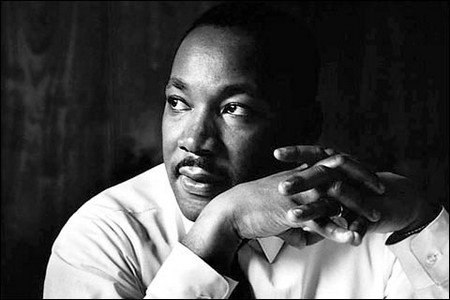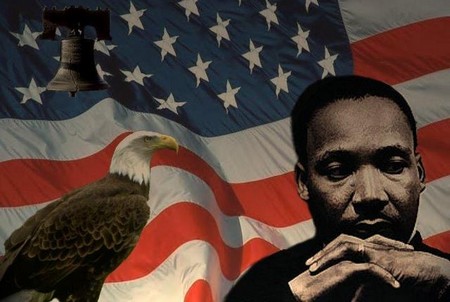Born on Jan. 15, 1929, in Atlanta, Georgia, Martin Luther King, Jr. was the son of Alberta Williams King and Reverend Martin Luther King, Sr. Initially, Martin Luther King, Sr. was named Michael King, and the famous civil rights activist was originally named Michael King, Jr. However, after a trip to Europe in 1934, his father legally had their names changed to Martin Luther King in honor of the German Protestant Reformation leader Martin Luther. He was an active choir member in his church and even sang at the 1939 premier of the movie Gone with the Wind in Atlanta. He married Coretta Scott on June 18, 1953, and the couple had four children. He then became a pastor at Dexter Avenue Baptist Church in Montgomery, Alabama in 1934. He was assassinated on April 4, 1968, in Memphis, Tennessee.

His Legacy
Martin Luther King was a clergyman, an activist and a prominent leader in the African-American civil rights movement. He is known as a human rights icon because of his efforts to secure civil rights in the United States of America. Martin Luther King, Jr. is also well-known as a Baptist minister. In 1955 he led the Montgomery Bus Boycott, a social and political protest campaign intended to oppose the city’s policy of racial segregation on its public transit system. He co-founded the Southern Christian Leadership Conference, an American civil rights organization, in 1957 and acted as its first president. Martin Luther King, Jr.’s efforts later led him to the March on Washington in 1963. The March on Washington was also known as the March on Washington for Jobs and Freedom and was a political rally at which Martin Luther King, Jr. delivered his historic “I Have a Dream” speech promoting racial harmony. More than 200,000 buses, 21 trains, 10 chartered airliners and countless cars gathered in Washington on Aug. 28, 1963. The supporters of the movement marched from the Washington Monument up to the Lincoln Memorial where Martin Luther King, Jr. delivered his speech.

Recognition and Awards
Martin Luther King, Jr. received the Nobel Peace Prize in 1964 for his efforts to end racial segregation and racial discrimination through civil noncompliance and other peaceful means. In 1965 the American Jewish Committee awarded him with the American Liberties Medallion for his unparalleled advancement of the principles of liberty. In 1965 he was awarded the Pacem in Terris (Peace on Earth) Award, named after a 1963 encyclical letter by Pope John XXIII. Before his assassination in 1968 he had planned to focus his efforts on ending poverty and opposing the Vietnam War, both from a religious point of view. The Planned Parenthood Federation of America awarded Martin Luther King, Jr. the Margaret Sanger Award for his courageous act against bigotry and his lifelong dedication to the advancement of social justice and human dignity. In 1968 the country of Jamaica awarded him the Marcus Garvey Prize for Human Rights. In 1977 he was posthumously honored with the Presidential Medal of Freedom. Martin Luther King, Jr. Day was recognized as a national holiday in the U.S. in 1986 and is observed on the third Monday of January every year. He was given the Congressional Gold Medal in 2004. Both the the Episcopal Church in the USA and the Evangelical Lutheran Church in America recognize the activist as a martyr.